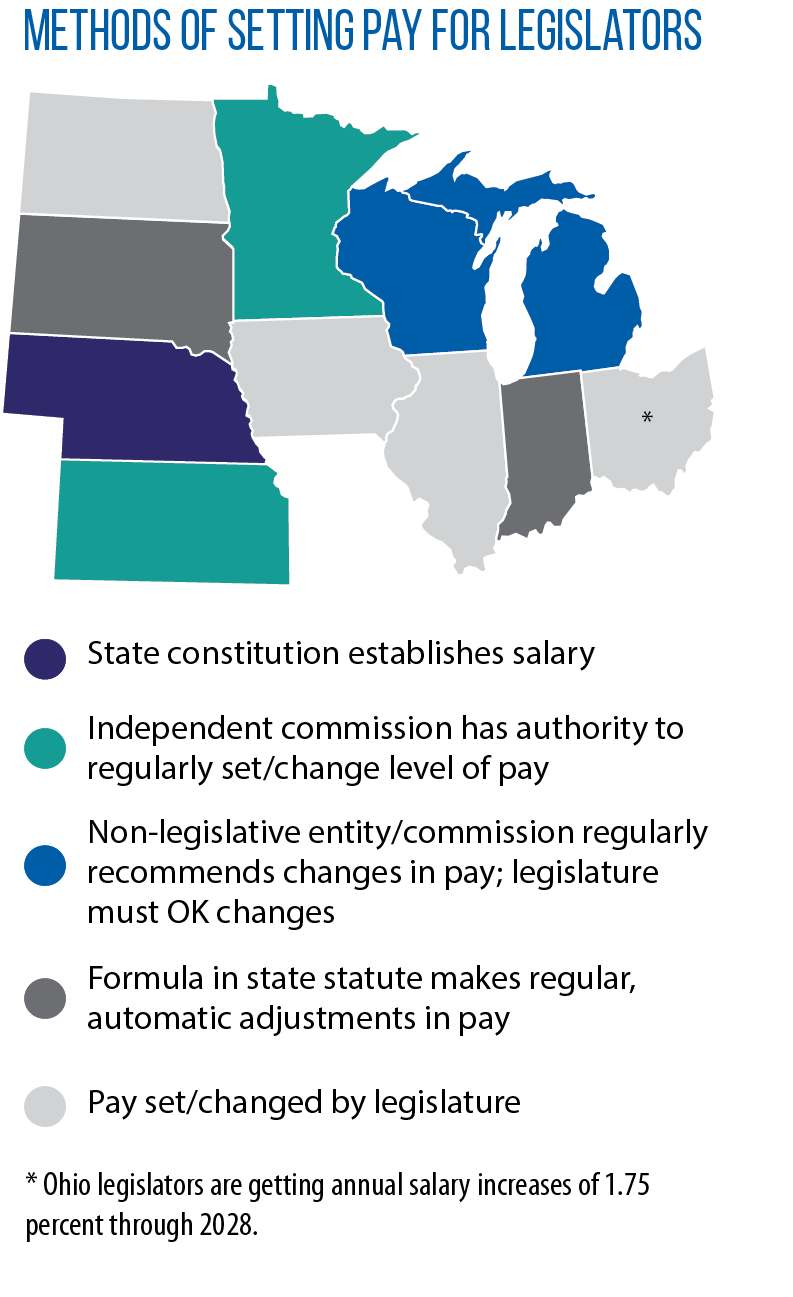Capital Closeup: In years ahead, Kansas will rely on outside commission to make changes in legislative pay
 Kansas has joined the handful of other Midwestern states that employ a commission-style approach to setting the salaries of legislators. The change in practice is the result of this year’s SB 229. During the 2023 session, lawmakers made $88.66 per day, a figure that hasn’t gone up since 2009, according to the Kansas Reflector.
Kansas has joined the handful of other Midwestern states that employ a commission-style approach to setting the salaries of legislators. The change in practice is the result of this year’s SB 229. During the 2023 session, lawmakers made $88.66 per day, a figure that hasn’t gone up since 2009, according to the Kansas Reflector.
The concern in Kansas, as well as some other Midwestern states, is that unchanging, low levels of compensation keep many people from being willing or able to serve.
Under the new Kansas law, a nine-member commission (appointed by the Legislature, but with no current legislators on it) is tasked with studying compensation rates and retirement benefits and then issuing recommendations every four years. Minus legislative action, the commission’s recommendations on legislative compensation take effect (the first such change will be in 2025).
In 2016, Minnesota voters overwhelmingly approved a constitutional amendment creating the independent Legislative Salary Council, which now sets legislative salaries every two years. The most recent change took effect in July and bumped annual pay up to $51,750. Prior to the council’s formation, legislative pay in Minnesota was $31,140 per year and had gone unchanged for a decade and a half.
 The pay of legislators in Wisconsin is included in a compensation plan that covers other state elected officials as well as state employees. Developed by the Department of Adminstration (an executive branch agency), the plan must get approval from a joint legislative committee. Michigan has a State Officers Compensation Commission, but any of its recommended changes to the pay of legislators must be voted on and approved by the House and Senate.
The pay of legislators in Wisconsin is included in a compensation plan that covers other state elected officials as well as state employees. Developed by the Department of Adminstration (an executive branch agency), the plan must get approval from a joint legislative committee. Michigan has a State Officers Compensation Commission, but any of its recommended changes to the pay of legislators must be voted on and approved by the House and Senate.
Nebraska is the only Midwestern state where salaries are constitutionally prescribed; as a result, any change in legislative pay in that state — currently $12,000 a year — requires voter approval.
Two states in the region have statutory language that automatically adjusts legislative pay: in South Dakota, annual changes make the salary equal to 20 percent of the state’s median income; and in Indiana, the pay level is equal to 18 percent of the salary for trial court judges.
Minus the use of commissions or statutory formulas, legislators typically must initiate and then approve changes in their own pay. In early 2023, the Illinois General Assembly bumped up the annual legislative salary to $85,000; an automatic cost-of-living increase of 5 percent also took effect with the passage and signing of the state’s new state budget.